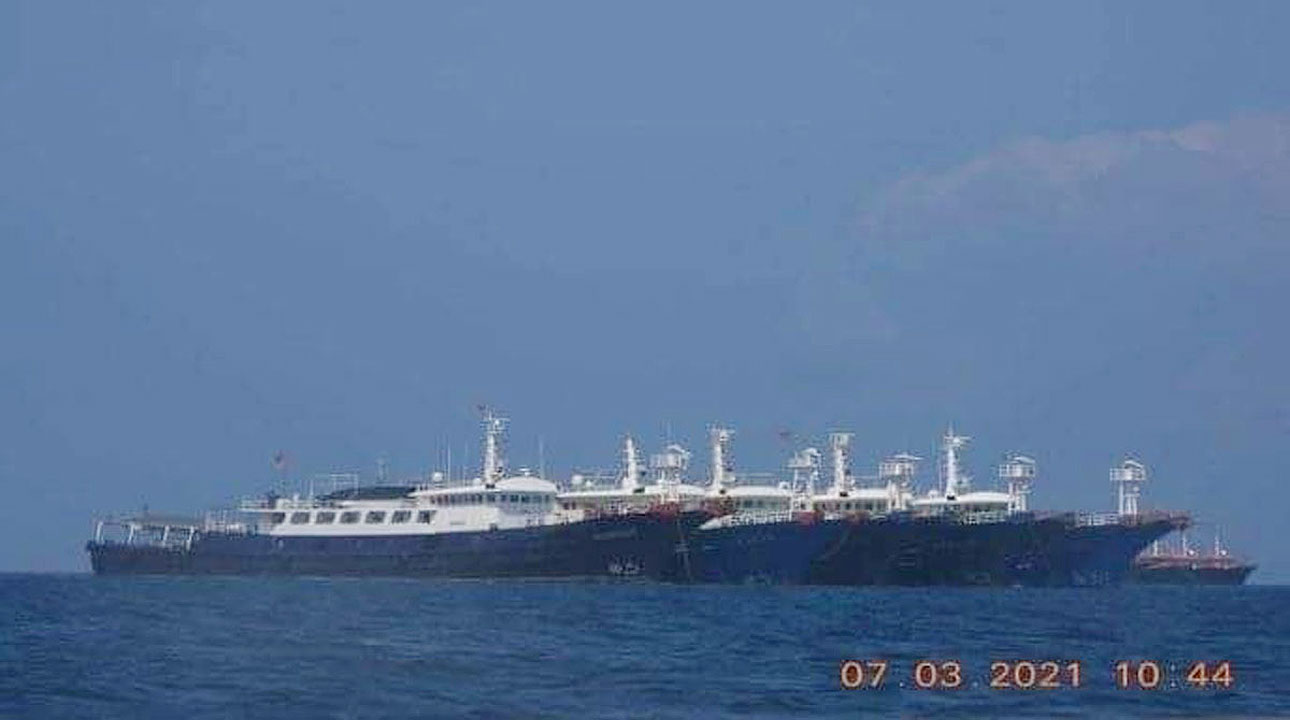US vows to defend Philippines in case of attack

THE UNITED STATES would support the Philippines’ 2016 arbitral win in a sea dispute with China, as it vowed to aid the Southeast Asian nation in case of an attack on its vessels in the South China Sea.
“You have our word and our commitment,” US Assistant Secretary of State for East Asian and Pacific Affairs Daniel J. Kritenbrink said during a bilateral strategic dialogue with Philippine officials in Washington, D.C. on Nov. 17, according to the Department of Foreign Affairs (DFA).
The dialogue was the culmination of recent high-level exchange of visits, including that of US Secretary of Defense Lloyd Austin to the Philippines in July.
Mr. Kritenbrink affirmed the United Nations-backed arbitral award that invalidated China’s claim to more than 80% of the waterway, and the application of the Mutual Defense Treaty in case of an armed attack on Philippine Armed Forces, public vessels or aircraft in the waterway.
Under the treaty, both sides must help each other in case of any external aggression.
Representatives from both countries signed a “joint vision” statement that sets out areas of cooperation that will further strengthen their relations, DFA said.
“The United States and the Philippines reaffirm our commitment to a partnership of sovereign equals,” according to the statement posted on the websites of the Philippine Embassy and US Department of State.
“We resolve to uphold and reinforce our special relationship by holding steadfast to our shared democratic values, enhancing our mutual security and defense capabilities,” it added.
Both governments said they seek to coordinate diplomatic efforts in building an international coalition that supports the international law-based maritime order.
“We share the view that the People’s Republic of China’s expansive maritime claims in the South China Sea are inconsistent with the international law of the sea as reflected in the United Nations Convention on the Law of the Sea,” they added.
The two-day dialogue focused not only on defense and maritime issues but also on counter-terrorism, human rights, post-pandemic recovery, climate change and clean energy.
The US and the Philippines will enhance cooperation in the face of new threats to both countries’ common welfare, including diseases, cyber-threats and transnational criminal and terrorist networks, according to the joint statement.
“In this regard, we plan to hold regular, candid dialogue and to explore and develop new areas of cooperation to strengthen the protection of human rights and revitalize democracy at home and abroad,” they added.
“We intend to ensure the Mutual Defense Treaty’s continued relevance to addressing current and emerging threats,” the two nations said in their joint statement.” “We intend to continue to implement infrastructure projects at current Enhanced Defense Cooperation Agreement locations and explore additional sites for further development.”
Philippine Ambassador to the US Jose Manuel G. Romualdez said the commitment would benefit both nations. “An economically prosperous Philippines with a strong, capable military is in the best interest of both nations and will make for an indomitable alliance and partnership.”
“The Philippines and the United States must work together to address current realities and challenges,” he said. “Frank exchanges and regular interactions between both sides must be sustained.”
The Philippines was represented by a 31-member delegation composed of senior officials and experts during the bilateral strategic dialogue.
Philippine President Rodrigo R. Duterte in July restored a military pact with the US on the deployment of troops for war games, reversing a decision that had caused concern in Washington and Manila.
The President last year said he was canceling the visiting forces agreement after the US Embassy canceled the visa of his former police chief and now Senator Ronald M. Dela Rosa. He had suspended the cancelation several times amid a coronavirus pandemic.
His decision to keep the military pact upheld the Philippines’ “strategic core interests,” his former spokesman said in July.
The visiting forces agreement provides rules for the rotation of thousands of US troops in and out of the Philippines for war drills. It has become more important as the United States and its allies contend with an increasingly assertive China. — Norman P. Aquino and Alyssa Nicole O. Tan



